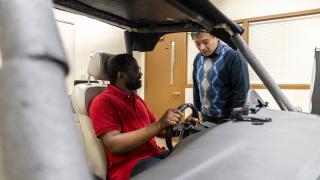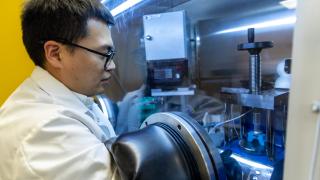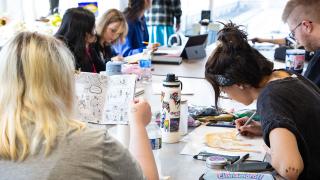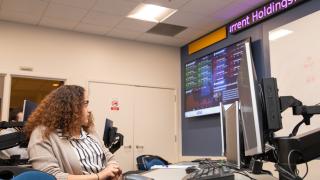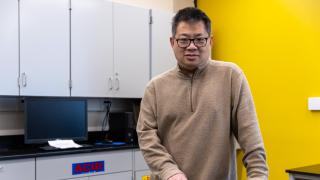
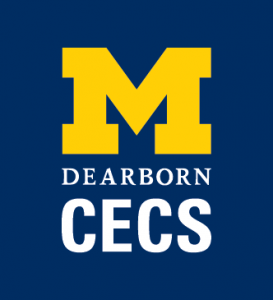
“I extended my graduation date so I could take advantage of what the co-op provides,” said Chung, a bioengineering and mechanical engineering major who has done three co-ops at General Electric Appliance in Kentucky. “Co-ops give you an edge after graduation. When everyone is looking for a job, I’ll have a good network and experience in my field already.”
The CECS co-op program is a way to close the gap between being a student and a professional, said Tony DeLaRosa, Engineering Experiential Learning assistant director.
“The idea is to learn about the practice of engineering while you are still in school, not wait until school is over,” he said. “We want students to take full advantage of the resources that are here and get that real-world experience now.”
Chung said she first heard the word “co-op” through the CECS dean’s office. Not sure what it entailed, she contacted DeLaRosa, who helped Chung sign up to the program and later alerted her that General Electric was coming to campus for an information night, and their recruiters were interested in her.
“I’m really grateful for that experience. My GE co-ops helped with streamlining my interests in the engineering field. I found out I liked designing parts or modifying them and that I liked working hands-on. It will definitely make it easier to find a job after graduation,” said Chung.
DeLaRosa said nearly 60 companies and more than 170 students participate in the program each year. Companies involved include Ford Motor Company, Toyota, Fives-Cinetic and Visteon.
“We actively recruit students and employers each semester and create connections. We work hard at making this nice network,” he said, noting that many student names come from faculty recommendations. “We actively nudge students out there to companies. And once companies see how talented our students are, they keep coming back.”
Emily Lerner, who did a co-op with United States Steel, said not only did her co-op give her an experience that makes her more marketable, it also paid well. And as a student who supports herself, this was essential.
“I live on my own and it was really a struggle to have four jobs and do school at the same time. I saved all of the money I earned from the USS co-op to be able to pay for my apartment for a year without having to worry about finances anymore,” said Lerner, a junior studying electrical engineering.
DeLaRosa said students like Lerner come to the office with different interests—like information technology, automotive, robotics, defense strategies or information technology—and he works as a matchmaker for his students to have a good start to their happily ever after.
“It builds confidence. It makes better students because you can apply what you’ve learned on your co-op to classroom lessons. It helps create a network with other engineers and it creates a smoother transition to full-time employment,” DeLaRosa said.
And from her experience, Chung agrees.
“I’m not the same person from when I did my first co-op. I’ve learned so much. My presentation and communication skills have improved. I’m not afraid to ask questions. I feel confident to take charge of a project,” she said. “I feel ready for graduation.”

